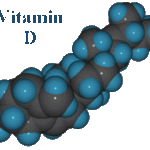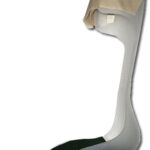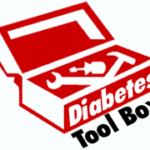 Researchers at the University of Michigan, in Ann Arbor, investigated the association between vitamin D and BMI (body mass index). Continue reading Vitamin D levels and adiposity
Researchers at the University of Michigan, in Ann Arbor, investigated the association between vitamin D and BMI (body mass index). Continue reading Vitamin D levels and adiposity
Monthly Archives: June 2011
Are psychological treatments effective for fibromyalgia pain?
 Some are effective, some are promising, according to researchers from the University of North Carolina, in Chapel Hill. Continue reading Are psychological treatments effective for fibromyalgia pain?
Some are effective, some are promising, according to researchers from the University of North Carolina, in Chapel Hill. Continue reading Are psychological treatments effective for fibromyalgia pain?
Does chiropractic improve sports performance?
 Dr. Andrew Miners is Assistant Professor at the Canadian Memorial Chiropractic Collage, in Toronto.
Dr. Andrew Miners is Assistant Professor at the Canadian Memorial Chiropractic Collage, in Toronto.
He reviewed the evidence. Continue reading Does chiropractic improve sports performance?
Options to prevent colorectal cancer
 Colorectal cancer is strongly associated with a Western lifestyle.
Colorectal cancer is strongly associated with a Western lifestyle.
Researchers at Harvard Medical School, in Boston, present an overview of the evidence. Continue reading Options to prevent colorectal cancer
Review: Black chokeberry
 Products derived from the black chokeberry, Aronia melanocarpa, are claimed to be beneficial in disorders or diseases associated with oxidative stress. But these claims are based primarily on laboratory and animal research.
Products derived from the black chokeberry, Aronia melanocarpa, are claimed to be beneficial in disorders or diseases associated with oxidative stress. But these claims are based primarily on laboratory and animal research.
Researchers at Hebrew University, Jerusalem reviewed the evidence in people. Continue reading Review: Black chokeberry
Adding tai chi improves antidepressant drug therapy
 During the New Clinical Drug Evaluation Unit Meeting, researchers at David Geffen School of Medicine at the University of California, Los Angeles, reported that adding tai chi to escitalopram (Lexapro, Cipralex, Seroplex) treatment further reduced the severity of depression. Continue reading Adding tai chi improves antidepressant drug therapy
During the New Clinical Drug Evaluation Unit Meeting, researchers at David Geffen School of Medicine at the University of California, Los Angeles, reported that adding tai chi to escitalopram (Lexapro, Cipralex, Seroplex) treatment further reduced the severity of depression. Continue reading Adding tai chi improves antidepressant drug therapy
TENS for patients using ankle-foot orthosis following stroke
 Orthosis is a device applied to a human limb in order to control or enhance movement or prevent bone movement or deformity. An example is shown in the photo.
Orthosis is a device applied to a human limb in order to control or enhance movement or prevent bone movement or deformity. An example is shown in the photo.
Researchers at Radboud University Nijmegen Medical Centre, in The Netherlands, evaluated whether community-dwelling chronic stroke patients wearing an ankle-foot orthosis would benefit from changing to functional electrical stimulation of the peroneal nerve. Continue reading TENS for patients using ankle-foot orthosis following stroke
Kaiser points out the 800-pound gorilla
 “14 states and the District of Columbia have launched a medical experiment that doesn’t follow any of the rules of science. By approving the use of marijuana as a medicine, they are bypassing the federal government’s elaborate processes for approving medicines.”
“14 states and the District of Columbia have launched a medical experiment that doesn’t follow any of the rules of science. By approving the use of marijuana as a medicine, they are bypassing the federal government’s elaborate processes for approving medicines.”
It has happened only once before. Continue reading Kaiser points out the 800-pound gorilla
Wearing glasses decreases the risk of falls in active seniors
 After providing single lens glasses to wearers of multifocal glasses, researchers at the University of Sydney, in Australia found that active seniors were less likely to fall. Continue reading Wearing glasses decreases the risk of falls in active seniors
After providing single lens glasses to wearers of multifocal glasses, researchers at the University of Sydney, in Australia found that active seniors were less likely to fall. Continue reading Wearing glasses decreases the risk of falls in active seniors
Acupuncture to treat hiccups in cancer patients
![]() Researchers at the National Center for Complementary and Alternative Medicine (NCCAM), National Institutes of Health, in Bethesda, Maryland tell us acupuncture may be a clinically useful. Continue reading Acupuncture to treat hiccups in cancer patients
Researchers at the National Center for Complementary and Alternative Medicine (NCCAM), National Institutes of Health, in Bethesda, Maryland tell us acupuncture may be a clinically useful. Continue reading Acupuncture to treat hiccups in cancer patients
Is acupuncture safe for children with cancer and low platelet counts?
 Acupuncture is frequently used to manage the side effects associated with cancer therapy.
Acupuncture is frequently used to manage the side effects associated with cancer therapy.
Researchers at Columbia University Medical Center, in New York City, studied the safety of acupuncture in patients with cancer treatment-related thrombocytopenia. Continue reading Is acupuncture safe for children with cancer and low platelet counts?
Continue reading Is acupuncture safe for children with cancer and low platelet counts?
Review: Hypnotherapy for smoking cessation
 This Cochrane review reports on 6-month quit rates. Continue reading Review: Hypnotherapy for smoking cessation
This Cochrane review reports on 6-month quit rates. Continue reading Review: Hypnotherapy for smoking cessation
Does ginseng aid cognition?
 It’s suggested, based on laboratory and clinical studies, that ginseng may have beneficial effects on cognitive performance (reasoning).
It’s suggested, based on laboratory and clinical studies, that ginseng may have beneficial effects on cognitive performance (reasoning).
This Cochrane review evaluated the evidence in healthy people. Continue reading Does ginseng aid cognition?
Coffee and the risk of death in women with cardiovascular disease
 Studies of the association between coffee drinking and mortality in patients with cardiovascular disease have reported conflicting results.
Studies of the association between coffee drinking and mortality in patients with cardiovascular disease have reported conflicting results.
Researchers in Boston assessed the association between filtered caffeinated coffee mortality during up to 24 years of follow-up in women with cardiovascular disease from the Nurses’ Health Study. Continue reading Coffee and the risk of death in women with cardiovascular disease
Risk of kidney stones with calcium and vitamin D
 The Women’s Health Initiative reported a 17% excess in urinary tract stone formation with calcium + vitamin D supplements.
The Women’s Health Initiative reported a 17% excess in urinary tract stone formation with calcium + vitamin D supplements.
Now, researchers in the US evaluated whether this risk might be modified by certain patient characteristics. Continue reading Risk of kidney stones with calcium and vitamin D
Cranberry juice to prevent catheter-associated urinary tract infection
 Catheter-associated bacteriuria is the most common healthcare–associated infection worldwide. It’s due to the widespread use of urinary catheterization.
Catheter-associated bacteriuria is the most common healthcare–associated infection worldwide. It’s due to the widespread use of urinary catheterization.
An Expert Panel of the Infectious Diseases Society of America reviewed the evidence and made recommendations to minimize this risk. Here’s what they say about cranberry juice. Continue reading Cranberry juice to prevent catheter-associated urinary tract infection
Cognitive effects of street cannabis in MS patients
 Given that multiple sclerosis (MS) is associated with cognitive (reasoning) deterioration, researchers at the University of Toronto, in Ontario, determined the neuropsychological effects of cannabis use in these patients.
Given that multiple sclerosis (MS) is associated with cognitive (reasoning) deterioration, researchers at the University of Toronto, in Ontario, determined the neuropsychological effects of cannabis use in these patients.
Listen up, Montel Williams. Continue reading Cognitive effects of street cannabis in MS patients
Reviewing the value of music in pediatric healthcare
 Researchers at Holland Bloorview Kids Rehabilitation Hospital, Toronto, in Ontario, reviewed the evidence. Continue reading Reviewing the value of music in pediatric healthcare
Researchers at Holland Bloorview Kids Rehabilitation Hospital, Toronto, in Ontario, reviewed the evidence. Continue reading Reviewing the value of music in pediatric healthcare
High use of CAM among people with diabetes
 Would you believe that about 80% of people with diabetes use CAM?
Would you believe that about 80% of people with diabetes use CAM?
Researchers at the University of California, in San Diego, surveyed patients attending the 6 Taking Control of Your Diabetes (TCOYD) educational conferences during 2004-2006. Continue reading High use of CAM among people with diabetes
Using diet to modulate Alzheimer’s disease
 Researchers at the University of Washington School of Medicine, in Seattle, compared the effects of a high–saturated fat/high–glycemic index diet with a low–saturated fat/low–glycemic index diet on markers of Alzheimer disease and cognition in adults with mild cognitive impairment. Continue reading Using diet to modulate Alzheimer’s disease
Researchers at the University of Washington School of Medicine, in Seattle, compared the effects of a high–saturated fat/high–glycemic index diet with a low–saturated fat/low–glycemic index diet on markers of Alzheimer disease and cognition in adults with mild cognitive impairment. Continue reading Using diet to modulate Alzheimer’s disease